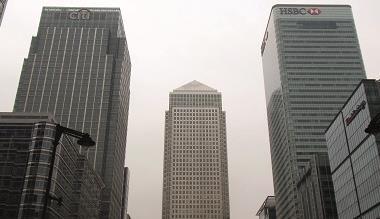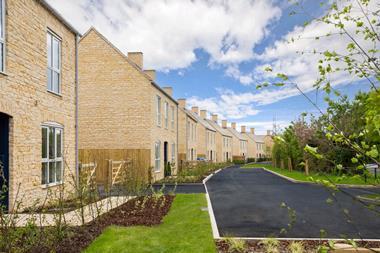CB Richard Ellis suffered a 79% slump in net profit last year after its fourth-quarter figures were hit by global economic woes.
The New York Stock Exchange-listed company last night reported a net profit of $83.9m (£57.9m), or $0.39 a share, in 2008, compared with $496.8m (£342.9m), or $2.11 a share in 2007.
Revenue was 15% lower at $5.1bn (£3.5bn) and earnings before interest, taxes, depreciation and amortisation was 45% lower at $457m (£315.5m).
In the fourth quarter CBRE generated a net profit of $6.5m (£4.5m), or $0.03 a share, which was 95% lower than the $122.4m (£84.5m), or $0.54 a share, in 2007. Revenue was down 28% to $1.3bn (£898m).
Excluding one-time charges, the fourth quarter profit per share was $0.37, which beat Wall Street forecasts of $0.27 a share. This could provide a boost to CBRE’s share price, which dropped 13.7% to $3.77 yesterday before the results were published.
However, CBRE warned that the results did not include the impact of ‘significant, pending, non-cash goodwill and other non-amortisable intangible asset impairments’, which are still being assessed. The company said it would have ‘significant impairment charges to record, most likely in the Americas, EMEA and development services segments. Given the complexity of this assessment, the final results are not yet completed, nor can a reasonable estimate be provided at this time. The impairment charge recorded will be non-cash in nature and will not affect liquidity, cash flows from operating activities, or compliance with debt covenants.’
‘The strength of our people and platform enabled us to gain new clients and build market share across the business in 2008, despite extremely challenging global economic conditions,’ said Brett White, president and CEO. ‘To better position CBRE for long term success, we have strategically diversified our revenue mix in the last few years with significantly increased contributions from fee-based outsourcing services and have moved decisively to eliminate fixed costs and improve operational efficiencies.
‘For 2008, these moves enabled us to remain profitable and achieve the third-highest normalised EBITDA in our history in the face of very tough commercial real estate market conditions. However, the credit crunch and global economic weakness pose serious challenges for our industry in 2009, and as such, we will continue to manage our business carefully to sustain profitability in a market where property sales and leasing activity remains highly constrained.'





























No comments yet